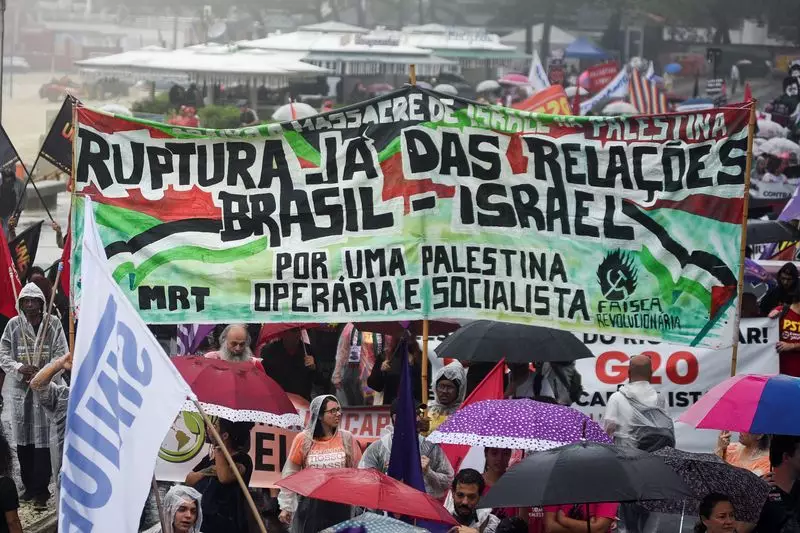The upcoming G20 summit in Rio de Janeiro stands as a critical crossroads for global diplomacy, as major economies grapple with pressing issues like climate financing, wealth taxation, and geopolitical conflicts. With the backdrop of the United Nations COP29 climate discussions unfolding simultaneously, the pressure is on for G20 leaders to forge a unified stance that not only addresses the climate crisis but also navigates intricate socio-economic and political landscapes. However, as diplomats from member nations converge, they face an array of daunting disagreements that threaten to derail progress.
At the heart of the G20 discussions is the contentious matter of climate financing. Developed nations are pushing for contributions from wealthier developing countries to bolster global responses to climate change. However, developing nations assert that the onus lies solely with the richest countries, who should lead the charge in addressing climate issues. This “north-south” divide in perspectives complicates negotiations; diplomats have indicated that states are entrenched in their positions, leading to a stalemate. The urgency of the situation escalates with the anticipated return of Donald Trump to the U.S. presidency, which may reignite America’s withdrawal from the Paris Climate Agreement, further diminishing hopes for a collaborative global approach.
The invasion of Ukraine by Russia continues to fracture the G20. Since the onset of the conflict, positioning on military and humanitarian aid has been fraught with discord. The ongoing situation in Gaza has only served to exacerbate these divisions, rendering discussions on conflict resolution increasingly precarious. In a bid to sidestep contentious debates, G20 sherpas have opted for a vague framework referencing United Nations principles while seeking to separately encapsulate issues related to both Ukraine and Palestine in diplomatic texts. This cautious maneuver aims to limit divisive rhetoric; however, it raises questions about the effectiveness of such approaches in yielding substantive agreements.
Additionally, discussions around taxation of the wealthy—a cornerstone issue for Brazilian President Luiz Inacio Lula da Silva—have encountered significant obstacles. The latest twist involves Argentina’s unexpected retreat from backing the proposal, influenced by the nation’s newly elected right-leaning leadership under President Javier Milei. Following a high-profile meeting with Trump, Argentina’s negotiators moved to exclude any reference to taxing the super-rich from the final statement, reflecting internal political dynamics that complicate collective action. This last-minute shift underscores the fragility of consensus within the group and raises concerns about the future of equitable wealth distribution mechanisms on a global scale.
As the G20 prepares for a summit laden with challenges, the potential for collective action hangs in the balance. The interplay between climate action, economic disparities, and geopolitical conflicts demands an unprecedented level of collaboration among the world’s largest economies. The outcomes in Rio will not only reflect the current state of international relations but will also set the stage for future multilateral engagements. The question that remains is whether the G20 can transform contention into cooperation amid a landscape marked by division. As the summit approaches, the world eagerly anticipates whether it can rise to the occasion.

